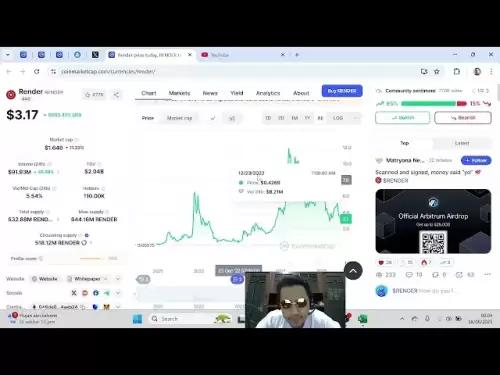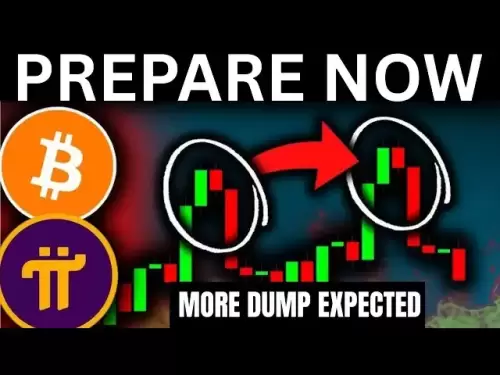-
 Bitcoin
Bitcoin $106,754.6083
1.33% -
 Ethereum
Ethereum $2,625.8249
3.80% -
 Tether USDt
Tether USDt $1.0001
-0.03% -
 XRP
XRP $2.1891
1.67% -
 BNB
BNB $654.5220
0.66% -
 Solana
Solana $156.9428
7.28% -
 USDC
USDC $0.9998
0.00% -
 Dogecoin
Dogecoin $0.1780
1.14% -
 TRON
TRON $0.2706
-0.16% -
 Cardano
Cardano $0.6470
2.77% -
 Hyperliquid
Hyperliquid $44.6467
10.24% -
 Sui
Sui $3.1128
3.86% -
 Bitcoin Cash
Bitcoin Cash $455.7646
3.00% -
 Chainlink
Chainlink $13.6858
4.08% -
 UNUS SED LEO
UNUS SED LEO $9.2682
0.21% -
 Avalanche
Avalanche $19.7433
3.79% -
 Stellar
Stellar $0.2616
1.64% -
 Toncoin
Toncoin $3.0222
2.19% -
 Shiba Inu
Shiba Inu $0.0...01220
1.49% -
 Hedera
Hedera $0.1580
2.75% -
 Litecoin
Litecoin $87.4964
2.29% -
 Polkadot
Polkadot $3.8958
3.05% -
 Ethena USDe
Ethena USDe $1.0000
-0.04% -
 Monero
Monero $317.2263
0.26% -
 Bitget Token
Bitget Token $4.5985
1.68% -
 Dai
Dai $0.9999
0.00% -
 Pepe
Pepe $0.0...01140
2.44% -
 Uniswap
Uniswap $7.6065
5.29% -
 Pi
Pi $0.6042
-2.00% -
 Aave
Aave $289.6343
6.02%
Complete Manual of Cryptocurrency K-line Chart Analysis: Essential Knowledge from Novice to Expert
K-line charts reveal crypto price trends through candlestick patterns like doji, hammers, and engulfing signals, helping traders spot reversals and market sentiment.
Jun 17, 2025 at 10:49 pm
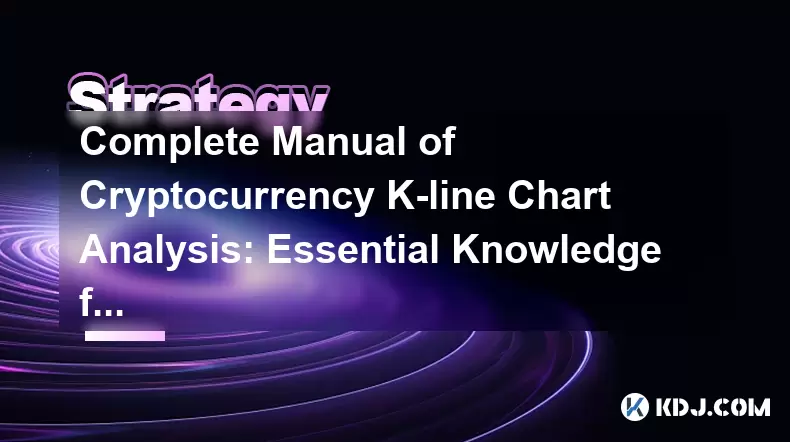
Understanding the Basics of K-line Charts
K-line charts, also known as candlestick charts, are essential tools for analyzing price movements in cryptocurrency markets. Each K-line represents a specific time interval and displays four key data points: open, high, low, and close prices. These candles can be either bullish (green or white) when the closing price is higher than the opening price or bearish (red or black) when the opposite occurs.
The body of the candlestick shows the range between the open and close, while the wicks or shadows indicate the highest and lowest prices reached during that period. Understanding how to read these visual cues helps traders make informed decisions based on historical price behavior.
It’s important to note that different timeframes—such as 1-minute, 1-hour, or daily charts—can reveal varying levels of detail, which means selecting the appropriate timeframe is crucial depending on your trading strategy.
Identifying Common K-line Patterns
There are numerous candlestick patterns that traders use to predict future price movements. Some of the most common include:
- Doji: This pattern forms when the open and close prices are nearly equal, indicating market indecision.
- Hammer and Hanging Man: Both have small bodies with long lower wicks. A hammer suggests a potential reversal from a downtrend, whereas a hanging man may signal a top reversal.
- Engulfing Pattern: When a large candle completely engulfs the previous candle's range, it often signals a strong shift in momentum.
- Shooting Star and Inverted Hammer: These appear similar but differ in context. A shooting star appears at the top of an uptrend and suggests a reversal, while an inverted hammer occurs during a downtrend.
Recognizing these patterns allows traders to anticipate potential trend reversals or continuations, improving their timing for entries and exits.
Reading Market Sentiment Through K-line Behavior
Beyond individual patterns, the overall structure and sequence of K-lines can reflect broader market sentiment. For example, a series of bullish candles with minimal upper wicks may suggest strong buying pressure, while frequent long upper wicks might indicate resistance zones where selling pressure kicks in.
Volume plays a critical role in confirming K-line signals. If a bullish engulfing pattern appears alongside a surge in volume, it strengthens the likelihood of a genuine trend reversal. Conversely, if such a pattern forms on low volume, it may not carry much weight.
Traders should also observe how price reacts near key support and resistance levels, as K-line formations around these areas tend to be more reliable indicators.
Combining K-line Analysis with Technical Indicators
While K-line charts offer valuable insights, they work best when used in conjunction with other technical tools. Popular indicators include:
- Moving Averages (MA): Help smooth out price data to identify trends more clearly.
- Relative Strength Index (RSI): Measures overbought or oversold conditions, which can validate or contradict K-line signals.
- Bollinger Bands: Show volatility and potential breakout points, especially useful when paired with candlestick breakouts.
For instance, a bullish hammer forming at the lower Bollinger Band combined with an RSI reading below 30 could indicate a strong buying opportunity, supported by both candlestick and oscillator analysis.
It’s also vital to avoid overloading charts with too many indicators, which can lead to confusion and contradictory signals. Focus on a few complementary tools that align with your trading style.
Practical Steps to Analyze Cryptocurrency K-line Charts
To begin analyzing K-line charts effectively, follow these steps:
- Choose a reliable charting platform like TradingView or Binance’s native tools.
- Select the appropriate cryptocurrency pair and timeframe based on your trading goals.
- Mark key support and resistance levels manually or using horizontal lines and trendlines.
- Identify recent candlestick patterns and assess whether they align with current market conditions.
- Cross-reference with volume and other indicators to confirm the strength of the signal.
- Set realistic entry, exit, and stop-loss levels based on candle behavior and nearby volatility.
Consistent practice and journaling of past trades help reinforce learning and refine strategies, making K-line analysis a powerful skill over time.
Common Mistakes to Avoid in K-line Chart Reading
Even experienced traders sometimes fall into pitfalls when interpreting K-line charts. One major error is relying solely on candlestick patterns without considering the broader market context. A bullish engulfing pattern in a strong downtrend may not necessarily reverse the trend unless accompanied by fundamental or macroeconomic shifts.
Another mistake is ignoring the importance of candle location. A hammer forming at a key support level is far more meaningful than one appearing in the middle of a sideways consolidation.
Lastly, trading every single pattern without filtering for quality setups leads to unnecessary losses. It’s better to wait for high-probability scenarios that align with your strategy rather than chasing every signal.
Frequently Asked Questions
What timeframes are best for K-line chart analysis in crypto trading?
The optimal timeframe depends on your trading strategy. Day traders often rely on 5-minute to 1-hour charts, while swing traders prefer 4-hour to daily charts. Long-term investors may focus on weekly or monthly charts for broader trend confirmation.
How do I distinguish between real and fake K-line patterns?
Real patterns typically form near significant support/resistance levels and are confirmed by volume and other indicators. Fake patterns often occur in low-volume environments or within tight ranges, lacking clear directional commitment from the market.
Can K-line analysis be applied to all cryptocurrencies?
Yes, K-line analysis applies universally across all tradable assets, including cryptocurrencies. However, less liquid altcoins may produce misleading patterns due to erratic price swings and thin order books, so caution is advised.
Is it possible to trade profitably using only K-line charts?
While some traders succeed using pure price action strategies, combining K-line analysis with volume and trend indicators significantly increases accuracy. Sole reliance on candlesticks without additional filters can result in false signals and emotional trading.
Disclaimer:info@kdj.com
The information provided is not trading advice. kdj.com does not assume any responsibility for any investments made based on the information provided in this article. Cryptocurrencies are highly volatile and it is highly recommended that you invest with caution after thorough research!
If you believe that the content used on this website infringes your copyright, please contact us immediately (info@kdj.com) and we will delete it promptly.
- 2025-W Uncirculated American Gold Eagle and Dr. Vera Rubin Quarter Mark New Products
- 2025-06-13 06:25:13
- Ruvi AI (RVU) Leverages Blockchain and Artificial Intelligence to Disrupt Marketing, Entertainment, and Finance
- 2025-06-13 07:05:12
- H100 Group AB Raises 101 Million SEK (Approximately $10.6 Million) to Bolster Bitcoin Reserves
- 2025-06-13 06:25:13
- Galaxy Digital CEO Mike Novogratz Says Bitcoin Will Replace Gold and Go to $1,000,000
- 2025-06-13 06:45:13
- Trust Wallet Token (TWT) Price Drops 5.7% as RWA Integration Plans Ignite Excitement
- 2025-06-13 06:45:13
- Ethereum (ETH) Is in the Second Phase of a Three-Stage Market Cycle
- 2025-06-13 07:25:13
Related knowledge
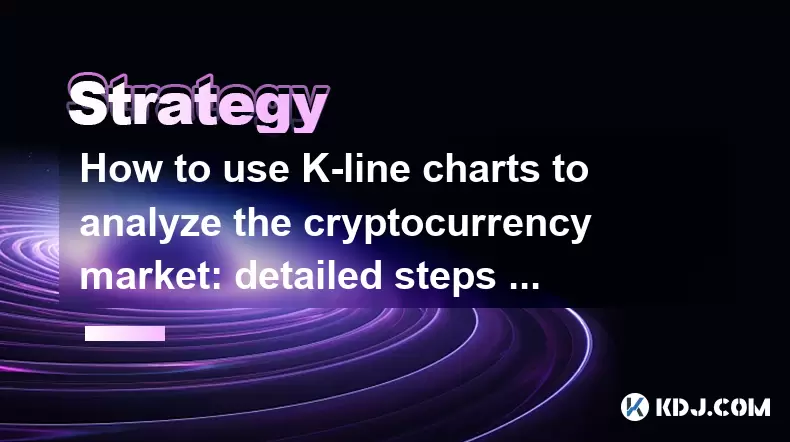
How to use K-line charts to analyze the cryptocurrency market: detailed steps and common misunderstandings
Jun 16,2025 at 01:42pm
Understanding the Basics of K-line Charts in Cryptocurrency TradingK-line charts, also known as candlestick charts, are one of the most widely used tools for analyzing price movements in financial markets, including cryptocurrencies. These charts provide a visual representation of price action over specific time intervals and help traders make informed ...

Cryptocurrency K-line chart technical analysis manual: Learn these methods to increase your chances of making a profit
Jun 11,2025 at 11:21pm
Understanding the Basics of K-line ChartsK-line charts, also known as candlestick charts, are one of the most widely used tools in cryptocurrency trading. Each K-line represents a specific time period and provides information about the open, high, low, and close prices during that interval. The body of the candle shows the relationship between the openi...
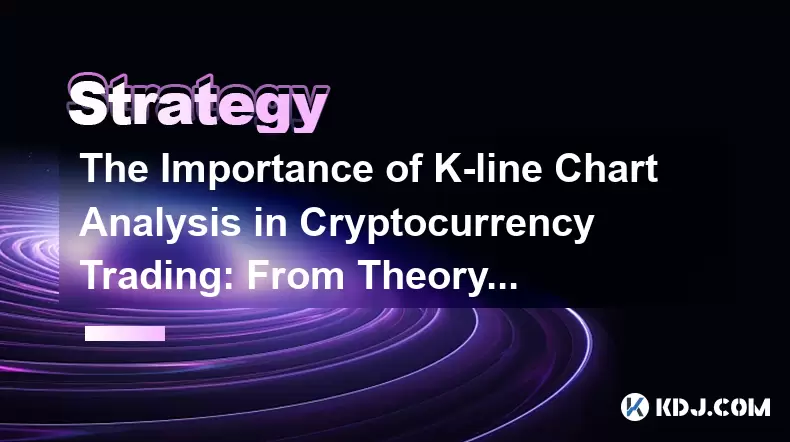
The Importance of K-line Chart Analysis in Cryptocurrency Trading: From Theory to Practical Cases
Jun 11,2025 at 04:56pm
Understanding the Basics of K-line ChartsK-line charts, also known as candlestick charts, are a visual representation of price movements over specific time intervals. Each K-line encapsulates four critical data points: the opening price, closing price, highest price, and lowest price within a given timeframe. These charts originated in Japan during the ...
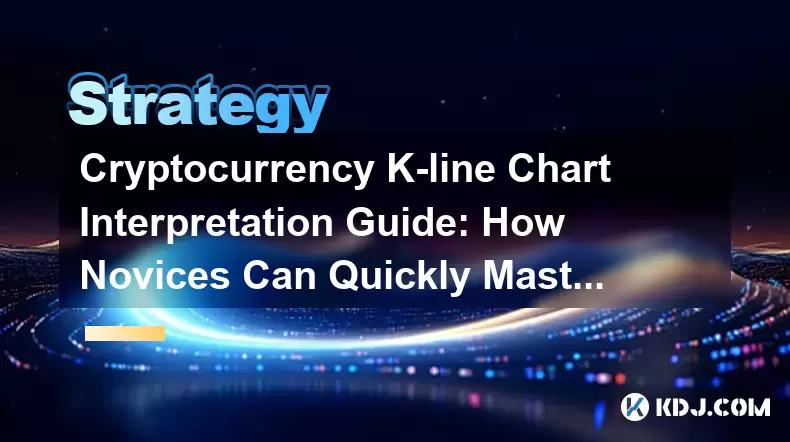
Cryptocurrency K-line Chart Interpretation Guide: How Novices Can Quickly Master the Basics of Technical Analysis
Jun 10,2025 at 08:56pm
Understanding the Basics of K-line ChartsK-line charts, also known as candlestick charts, are one of the most widely used tools in cryptocurrency trading for analyzing price movements. Each K-line represents a specific time period and shows the opening, closing, high, and low prices during that interval. For novices, grasping how to read these elements ...
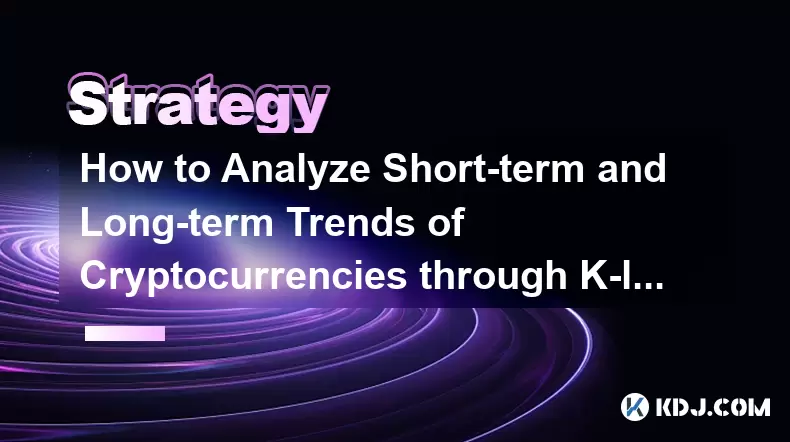
How to Analyze Short-term and Long-term Trends of Cryptocurrencies through K-line Charts: A Complete Guide
Jun 15,2025 at 12:49pm
Understanding the Basics of K-line ChartsK-line charts, also known as candlestick charts, are essential tools used in cryptocurrency trading to visualize price movements over time. Each candlestick represents a specific time interval and contains four key data points: open, high, low, and close. The body of the candle shows the range between the opening...
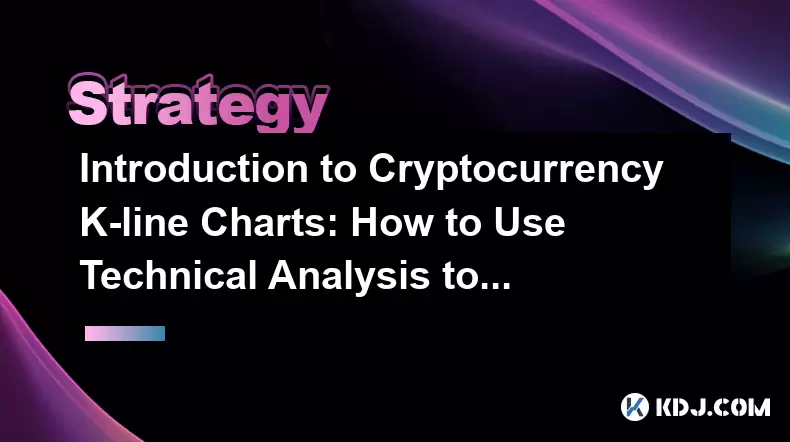
Introduction to Cryptocurrency K-line Charts: How to Use Technical Analysis to Optimize Trading Decisions
Jun 12,2025 at 03:56pm
Understanding the Basics of K-line ChartsK-line charts, also known as candlestick charts, are one of the most essential tools used in cryptocurrency trading. Originating from Japan, these charts visually represent price movements over specific time intervals. Each candlestick displays four key pieces of information: the opening price, closing price, hig...

How to use K-line charts to analyze the cryptocurrency market: detailed steps and common misunderstandings
Jun 16,2025 at 01:42pm
Understanding the Basics of K-line Charts in Cryptocurrency TradingK-line charts, also known as candlestick charts, are one of the most widely used tools for analyzing price movements in financial markets, including cryptocurrencies. These charts provide a visual representation of price action over specific time intervals and help traders make informed ...

Cryptocurrency K-line chart technical analysis manual: Learn these methods to increase your chances of making a profit
Jun 11,2025 at 11:21pm
Understanding the Basics of K-line ChartsK-line charts, also known as candlestick charts, are one of the most widely used tools in cryptocurrency trading. Each K-line represents a specific time period and provides information about the open, high, low, and close prices during that interval. The body of the candle shows the relationship between the openi...

The Importance of K-line Chart Analysis in Cryptocurrency Trading: From Theory to Practical Cases
Jun 11,2025 at 04:56pm
Understanding the Basics of K-line ChartsK-line charts, also known as candlestick charts, are a visual representation of price movements over specific time intervals. Each K-line encapsulates four critical data points: the opening price, closing price, highest price, and lowest price within a given timeframe. These charts originated in Japan during the ...

Cryptocurrency K-line Chart Interpretation Guide: How Novices Can Quickly Master the Basics of Technical Analysis
Jun 10,2025 at 08:56pm
Understanding the Basics of K-line ChartsK-line charts, also known as candlestick charts, are one of the most widely used tools in cryptocurrency trading for analyzing price movements. Each K-line represents a specific time period and shows the opening, closing, high, and low prices during that interval. For novices, grasping how to read these elements ...

How to Analyze Short-term and Long-term Trends of Cryptocurrencies through K-line Charts: A Complete Guide
Jun 15,2025 at 12:49pm
Understanding the Basics of K-line ChartsK-line charts, also known as candlestick charts, are essential tools used in cryptocurrency trading to visualize price movements over time. Each candlestick represents a specific time interval and contains four key data points: open, high, low, and close. The body of the candle shows the range between the opening...

Introduction to Cryptocurrency K-line Charts: How to Use Technical Analysis to Optimize Trading Decisions
Jun 12,2025 at 03:56pm
Understanding the Basics of K-line ChartsK-line charts, also known as candlestick charts, are one of the most essential tools used in cryptocurrency trading. Originating from Japan, these charts visually represent price movements over specific time intervals. Each candlestick displays four key pieces of information: the opening price, closing price, hig...
See all articles
























